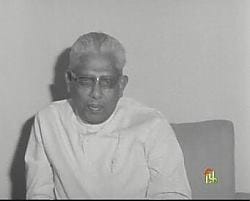The Unassuming Minister
The Unassuming Minister
A tribute to R S Perera
This article pays tribute to R. S. Perera, a former Sri Lankan government minister from Dalugama, Kelaniya. The article highlights Perera’s humble nature despite his political achievements and his dedication to his constituents. It details the significant economic growth witnessed in his electorate during his time in office and his later decision to leave politics and return to his village roots. The author concludes by emphasizing Perera’s lasting impact on his community, not just as a politician, but as a respected and beloved member.
Inthe peaceful village of Dalugama, tucked away in the heart of Kelaniya, life flowed like a gentle stream, largely unaffected by the broader political landscape. For years, the villagers went about their daily routines, blissfully unaware of the existence of their member of parliament, R. S. Perera. This ignorance seemed to serve them well; the village thrived as a self-sufficient haven, where the air was fresh and the paddy fields swayed gracefully in the breeze. Dust and debris were tidied up by the local council, who performed their duties with quiet diligence, making cleanliness feel like an integral part of life rather than a chore.
R. S. Perera, affectionately known as R. S. the minister, was a familiar figure in the village. He drove his car along the winding roads of his constituency, often stopping to offer a lift to anyone he recognized. His passenger seat was a welcoming space for friends and neighbours, reflecting his unpretentious nature. R. S. lived in the same modest house he had always owned, a testament to his commitment to the community he served.
His elder brother, a humble shopkeeper, ran a small grocery store in the village. This brother measured out rice, sugar, and flour with care, managing the till himself. The fact that R. S. held a ministerial position in a cabinet of only twenty ministers was of little concern to him. Clad in a simple sarong that reached his knees, he embodied the spirit of the common man, focused solely on his daily tasks.
R. S. had two younger sisters who mirrored the simplicity of their lives. They walked along the dusty roads with purpose, attending church and engaging in their daily routines, seemingly oblivious to their brother’s political stature. To them, he was just R. S., an ordinary man navigating the familiar rhythms of village life.
However, beneath the surface of this tranquil existence lay R. S.’s strategic mind. He understood the importance of development and worked diligently for the betterment of his constituency. Under his leadership, Dalugama experienced significant growth. In the early seventies, a prominent university was established, an oil refinery was built, and a tyre factory, along with the country’s largest garment manufacturing facility, sprang up in his electorate. These developments brought jobs and prosperity, transforming the village into a hub of activity while maintaining its charm. The electorate of Kelaniya became a hub of activity in the north of Colombo, an engine of growth for its people.
As the years passed, the villagers began to notice the subtle changes around them. New faces appeared in the village, and the sounds of machinery filled the air. They started to connect the dots, realizing that their unassuming minister had played a pivotal role in shaping their community’s future. Yet, even as they acknowledged his contributions, R. S. remained a familiar figure, always ready to lend a hand or share a laugh, embodying the essence of a leader who never forgot his roots.
During his tenure as the Minister of Arts, Films, and Broadcasting, Sri Lankan cinema achieved remarkable heights, particularly in the realm of art films that were remarkably progressive for their time. The music broadcasted on radio stations was also more authentic compared to the contemporary cabal music prevalent today.
When R. S. turned 50, he made a surprising decision: he chose to step away from politics and return to his roots as a local villager and a civilian. He wanted to immerse himself fully in the life of Dalugama, to experience the simplicity he had always cherished. The villagers welcomed him back with open arms, grateful for the years of service he had provided. In their eyes, he was not just a former minister but a beloved member of their community, a bridge between the simplicity of village life and the complexities of governance.
In Dalugama, life continued to flow effortlessly, blending the old with the new. R. S. Perera, the minister turned local villager, remained a steadfast presence, a reminder that true leadership lies not in titles but in the connections we forge with those around us.

Comments
Post a Comment